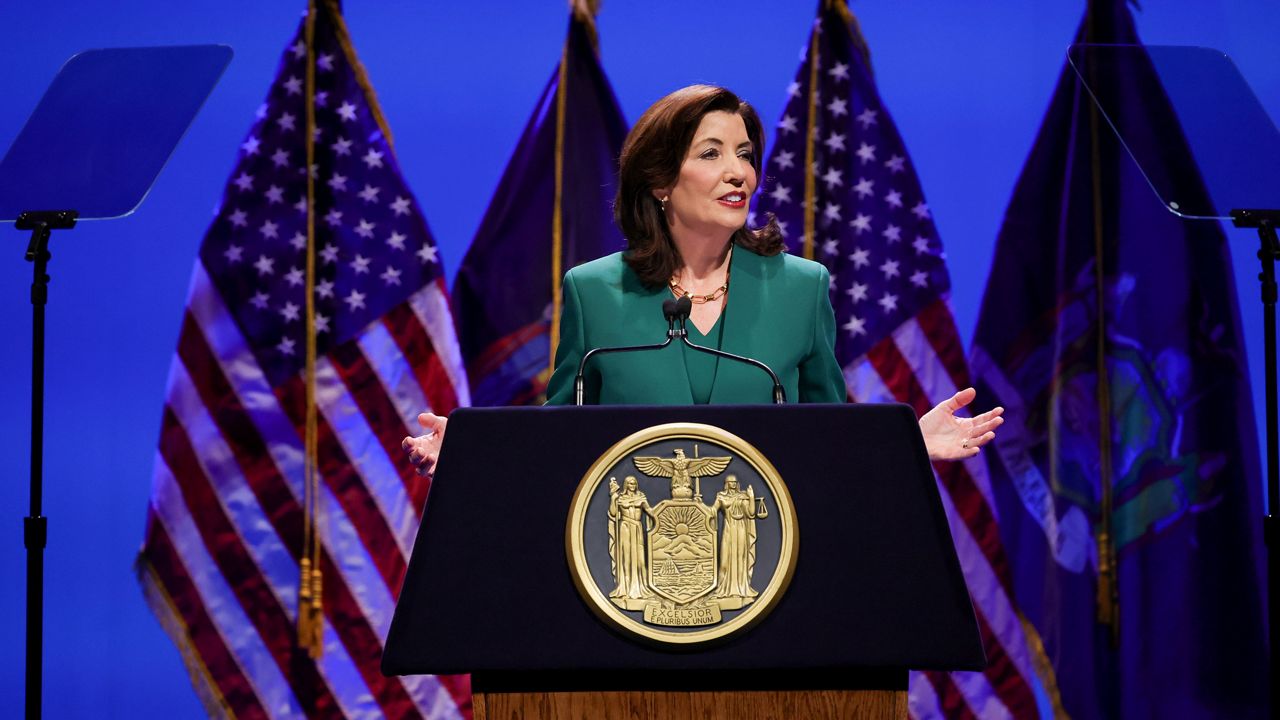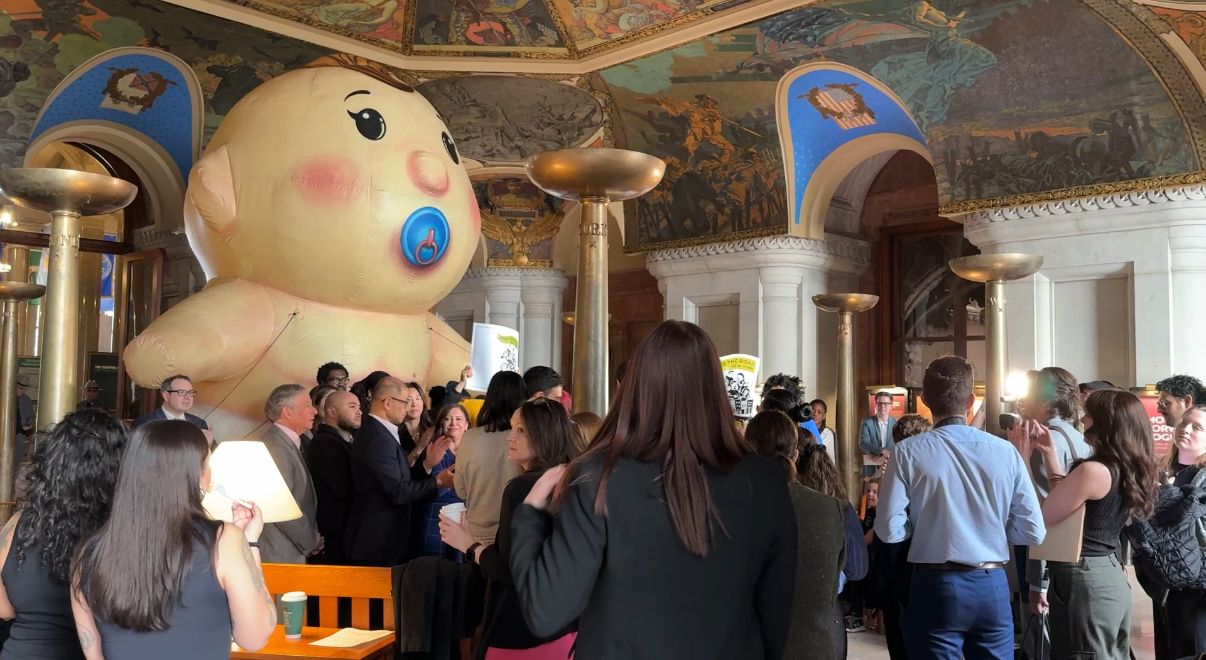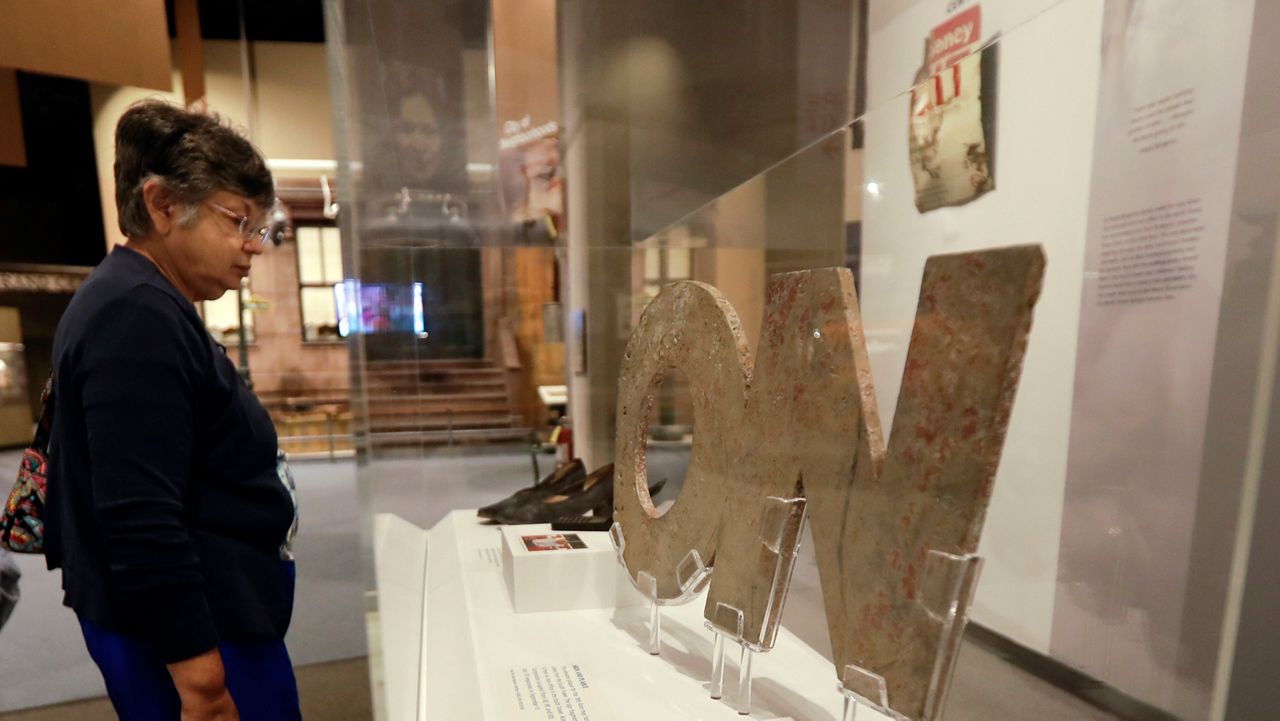More cannabis farmers are pushing for New York state officials to expand who can apply for a retail license as a state Supreme Court justice will decide Friday if the state's Conditional Adult-Use Retail Dispensary program is constitutional, threatening to again put the industry on hold.
Cannabis farmers could become more reliant on selling their marijuana flower and products at pre-approved public events legalized last month depending on the outcome of Friday's hearing. The decision comes after a group of service-disabled veterans filed suit late last week arguing the state's Conditional Adult-Use Retail cannabis license program, which gives priority licenses to people with former marijuana convictions, is unconstitutional.
Brittany Carbone, a licensed cultivator and board member of the Cannabis Association of New York says the state Office of Cannabis Management must expand retail applications to the general public as soon as possible — especially if the judge issues a longer ban on new stores at week's end.
"We want to see this be a really diverse marketplace that has a lot of opportunity for a lot of different operators from a lot of different backgrounds, and we need the general applications to open to be able to do that," she said Tuesday.
At the same time, Carbone added it's essential for the CAURD program to continue.
"At the end of the day, we need the current program to continue," she said. "...The only thing that can really provide the type of relief that cultivators need is to allow for the CAURD program to not only continue, but to accelerate the process of opening these stores and to approve the real estate and to get all these going."
The plaintiffs in the latest legal challenge to the state's cannabis industry charge the Conditional Adult-Use Retail program with violating the Marijuana Regulation & Taxation Act, challenging provisions in the law they say did not give the state Office of Cannabis Management the authority to create a retail licensing program that did not open applications to everyone at the same time.
"For them, the argument is, by creating this program that they claim is illegal, they are now being deprived of a certain level of priority that they're entitled to," said Fatima Afia, a cannabis litigation professional with Rudick Law Group PLLC.
Farmers are set to begin selling their cannabis products at approved public events, like festivals or fairs, this weekend. The first public events to feature legal recreational marijuana products for sale will take place in Saratoga, Brooklyn, Hoosick Falls and Western New York in the coming weeks, Carbone said.
Officials with the state Farm Bureau are also concerned about the litigation's potential impact on cannabis cultivators, saying farmers need a full retail market to be successful.
Renee St. Jacques, senior associate director of public policy, says the Farm Bureau is grateful cannabis growers — who are running a business — have the opportunity to sell their products at public events, but cautioned the allowance sunsets Jan. 1.
There's 21 legal marijuana dispensaries open across the state, or about 5% of the 436 issued retail licenses. At least 80% of licensed growers in the state, St. Jacques said, have not had the opportunity to connect with a retailer.
"There just aren't a lot of retail options at this point," she said. "...They're growing adult-use cannabis. The farmers are growing that and we're starting this market, keeping this market going now ... We really need to support the farmers who have taken that risk."
With 21 dispensaries open across New York, cannabis cultivators have been optimistic about selling their products at public events while they wait for more legal retail shops to statewide. But as they prepare for their second harvest in the coming months, the temporary order banning new licenses and approval of retail plans is giving rise for them to worry the showcases will provide inadequate opportunity to legally sell their stock to New Yorkers.
"In this battle of Main Street versus Wall Street, we're going to see clear winners, and unfortunately, it's really not the small-business owners that we want to see this industry built with," Carbone said.
OCM did not respond to questions Tuesday about upcoming cannabis grower showcases, including the number of applications they've received for events, their status or other plans to help cultivators sell their products.
"The Office of Cannabis Management is aware of the court's order and is adhering to its requirements," OCM spokesman Trivette Knowles said in a statement Tuesday. "We are actively communicating with CAURD applicants and provisionally approved licensees to inform them of the impact of the court's order on OCM operations."
Three cultivators are required to partner with one New Yorker with a conditional adult-use retail license to sell recreational marijuana at an event pre-approved by OCM and the corresponding locality. Retailers conduct checkout sales at these events, and must have approved banking insurance, security plan, point of sale system and other details OK'd by the state department — limiting the number of the 436 licensed retailers that can participate.
OCM officials have announced the agency plans to expand retail applications in October.
It takes an average of a year to 18 months to open a retail location after an application gets approved, Carbone said.
"We're still looking at a long time before a lot of those operators are actually active in the marketplace, so that does need to happen very soon," she added.
But people with former marijuana convictions want their chance to get their small businesses off the ground first, as promised.
The temporary order will prevent Jeremy Rivera, who owns Terp Bros Cannabis in Astoria, Queens, from opening next week as scheduled.
Rivera served about five years in prison in multiple states for three marijuana-related convictions, and left his job in construction to open his Queens dispensary.
"It wasn't just the dispensary end or the retail end, it was the justice involvement and having the ability to prove and show that people with convictions are hard-working people and have the ability to sustain successful businesses and make sure they flourish and blossom," Rivera said Tuesday. "I want to be that beacon of people showing that change is a real thing, that people actually change. Rehabilitation is possible."
The CAURD program is the only marijuana licensing program in the nation to give priority to people with former convictions.
"There is no prioritization for convicts in anything but this CAURD program, and I don't want that stigma to hold so true that they're just giving handouts to low-life criminals who don't know business," Rivera said. I want it to be that person that showed that this program was going to work."
Attorneys say the legal challenge to the licensing program won't be a straightforward decision. Challengers are pointing to specific language in the state law, but Afia said it's not a clean argument on either side of the case and could go either way.
"It's really going to come down to who has the better argument of statutory interpretation, whether that's OCM or the plaintiffs," she explained. "And also, it's going to come down to the judge and how they read the statute."
The lawsuit will remain pending for months after Friday's decision, with OCM tasked with submitting opposition papers by Sept. 7.
Regardless of Friday's decision, Rivera says a legal resolution is needed as soon as possible to prevent a gut-wrenching blow to the new industry.
"This isn't just a cannabis, a weed, program where people are buying and selling and getting high — this is life-changing events that can honestly change the trajectory of so many lives," he said.
*Editor's note: This story has been modified. The Cannabis Association of New York supports the state's Conditional Adult-Use Retail Dispensary program.










